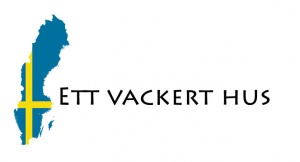Difference between revisions of "Language/Swedish/Grammar/Adjectives"
Jump to navigation
Jump to search
| Line 20: | Line 20: | ||
==Adjective: vacker== | ==Adjective: vacker== | ||
*Ett '''vackert''' hus. < | *Ett '''vackert''' hus. | ||
*En '''vacker''' flicka. < | <blockquote>a -t is added because "hus" is an "ett-word"</blockquote> | ||
*Två '''vackra''' tavlor. < | |||
*En '''vacker''' flicka. | |||
<blockquote>the adjective does not need to be conjugated when describing "en-words"</blockquote> | |||
*Två '''vackra''' tavlor. | |||
<blockquote>we remove -er and add -ra, to show that this word is in plural.</blockquote> | |||
Let's look at another example: | Let's look at another example: | ||
Revision as of 18:25, 15 May 2019
Alert: Before you take this lesson you should take the lesson on Swedish nouns (Ett or Enn)!
In Swedish, the adjectives are conjugated depending on the noun that is being described.
First, see this English example:
Adjective: beautiful
- A beautiful house.
- A beautiful girl.
- Two beautiful paintings.
The adjective doesn't change!
Now, look at the Swedish example:
Adjective: vacker
- Ett vackert hus.
a -t is added because "hus" is an "ett-word"
- En vacker flicka.
the adjective does not need to be conjugated when describing "en-words"
- Två vackra tavlor.
we remove -er and add -ra, to show that this word is in plural.
Let's look at another example:
Adjective: stor (eng: big)
- Ett stort bord. (eng: a big table)
- En stor skola. (eng: a big school)
- Två stora hästar. (eng: two big horses)
Can you tell the difference now?
Authors
